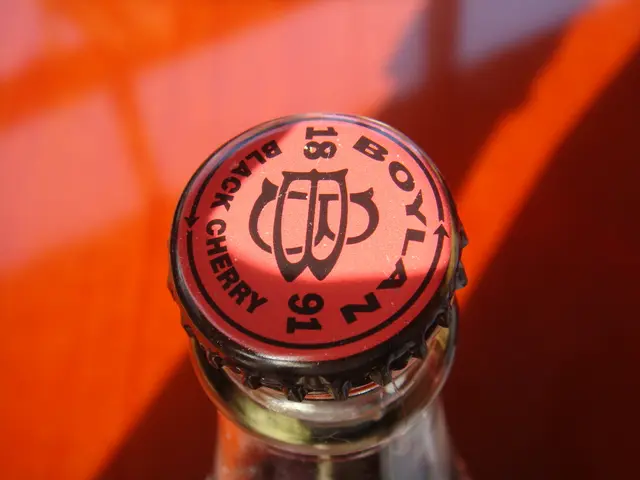Revolutionary Leukemia Eradication: Remission Achieved through Groundbreaking Treatment
Immerse yourself in the life-changing world of CAR T-cell therapy, a groundbreaking cancer treatment that turbocharges your immune system to obliterate cancerous cells. In a recent groundbreaking study, doctors marveled as two patients with leukemia, who received this revolutionary treatment over a decade ago, remained cancer-free!
This amazing discovery could indicate that CAR T-cell therapy may be the missing key to maintaining cancer in remission for decades.
The immunotherapy landscape is ever-evolving, and CAR T-cell therapy is one of the most exciting innovations. By harnessing the power of your own immune cells, researchers can put them to work on the battlefront against cancer, resulting in the elimination of the disease.
CAR T-cell therapy is a subcategory of Adoptive Cell Transfer (ACT).agine receptor (CAR) T-cells are the army of white blood cells that attack cancer cells—your very own soldiers in the battle against cancer. These T-cells are activated with chimeric antigen receptors engineered to home in on specific proteins on cancer cells, ensuring only the enemy receives the death blow. In the United States, the Food and Drug Administration (FDA) has already given the green light to five CAR T-cell therapies, demonstrating the progress and efficacy of this treatment.
But the saga doesn't stop there—researchers are still uncovering the long-term implications of CAR T-cell therapy. For example, are T-cells with the specialized receptors still present in the body a decade later, and can they maintain cancer at bay for the long haul? That's what the authors of this latest study were after.
Long-term Implications of CAR T-cell Therapy
Chronic lymphocytic leukemia (CLL) is a type of leukemia that arises in the bone marrow and primarily affects adults. In this study, the researchers examined the long-term outcomes of CAR T-cell therapy in two CLL patients.
According to Dr. Sara Ghorashian, a renowned leukemia expert at the University College London Great Ormond Street Institute of Child Health, treatment options for CLL have been limited. Though CAR T-cell therapy is not currently approved for CLL, recent trials have yielded promising results.
Both study participants underwent CAR T-cell therapy as part of a treatment trial. After being in remission since 2010, they continue to defy the odds—they are still cancer-free a decade later! Furthermore, researchers were able to detect certain T-cells, indicating that the treatment may have long-lasting effects.
Maintaining the Cure: A Helper T-cell Revolution
The researchers were surprised to find that, over time, a specific type of T-cell, CD4+ T cells – also known as helper T-cells – had taken up the mantle of the killers. These T-cells aid the body in fighting off infections by orchestrating other immune cells. The researchers discovered that these helper T-cells were still active and functional, hinting that they were responsible for maintaining the remission.
Dr. J. Joseph Melenhorst, one of the study's authors, summarized their findings:
"The therapy works by deploying engineered patients' immune cells with CAR to bind to tumor cells, and doing so eliminates tumor cells. We find that 10 years after treatment of remission patients, we still find these cells. Initially, we find that killer cells are doing most of the heavy lifting. But at this late stage in the game, we find that actually, the helper cells are the forces that maintain the cure."
- Dr. Melenhorst
This study provides vital insights into CAR T-cell therapy's long-term impact and opens the door to future research. As more evidence emerges about this life-changing treatment, it could become a more widespread and accessible option for those battling cancer. Researchers can also explore its effectiveness against different types of cancer and strategize ways to further improve CAR T-cell therapy.
Dr. Melenhorst encourages curiosity and further investigation:
"We need to do a lot more. We've characterized this in two patients with CLL. We need to see if this applies to other CLL patients, if you treat it with the same therapy. What does that look like in other types of leukemia? And how can we use what we learn to make better curative CAR T cells?"
- Dr. Melenhorst
The future of CAR T-cell therapy is a tantalizing prospect, with endless possibilities that could reshape the way we combat cancer.
Enrichment Data:
Overall:
The long-term effectiveness of CAR T-cell therapy in treating chronic lymphocytic leukemia (CLL) is a promising area of research, though it remains a developing field. Here are some key findings:
Current Status and Outcomes
- Sustained Remissions: Early studies have shown that CAR T-cell therapy can lead to sustained remissions in some CLL patients. For instance, a study noted that patients achieving remission tend to sustain it, suggesting a potential cure for those with CLL[1].
- Optimization and Response Rates: The effectiveness of CAR T-cell therapy, such as lisocabtagene maraleucel (liso-cel), can be improved in patients with fewer prior lines of therapy, as shown in the TRANSCEND-CLL-004 trial. This suggests that earlier treatment may yield better outcomes[2].
- Limitations and Challenges: Despite its potential, CAR T-cell therapy is not universally effective for CLL patients. It is effective in only a minority of CLL patients, and issues such as T-cell exhaustion and the need for personalized treatment remain challenges[1][4].
Future Directions
- In Vivo Engineering: Recent research has focused on in vivo CAR T-cell engineering, which could potentially simplify the treatment process and improve accessibility. This approach has shown promise in preclinical studies with nonhuman primates[3].
- Next-Generation Therapies: While CAR T-cell therapy has not yet achieved long-term remission in a significant portion of CLL patients, ongoing research into next-generation CAR T-cell therapies holds promise for improving outcomes. These advancements aim to enhance the durability and efficacy of the treatment[5].
Overall, while CAR T-cell therapy offers hope for CLL patients, especially those with limited treatment options, its long-term effectiveness varies widely among individuals, and ongoing research is needed to optimize and expand its benefits.
- The immunotherapy landscape continues to advance, with CAR T-cell therapy being one of the most exciting innovations in patient care, working to eliminate cancer by harnessing the power of the immune system.
- The effectiveness of CAR T-cell therapy in leukemia has shown promising long-term results, as demonstrated by two patients who remained cancer-free over a decade after receiving the treatment.
- This revolutionary treatment could potentially maintain cancer in remission for decades, making it a significant breakthrough in the battle against cancer and chronic diseases.
- CAR T-cell therapy is a subcategory of Adoptive Cell Transfer (ACT) and involves the use of specialized white blood cells called CAR T-cells that attack cancer cells, activation achieved through engineered chimeric antigen receptors.
- The Food and Drug Administration (FDA) in the United States has already approved five CAR T-cell therapies, demonstrating the progress and efficacy of this treatment in health and wellness.
- Researchers are discovering long-term implications of CAR T-cell therapy, including the persistence of specialized T-cells in the body a decade later and their potential role in maintaining remission for chronic diseases like cancer.
- The study of CAR T-cell therapy's long-term impact could lead to further research and wider availability of this life-changing treatment, with potential application against various types of cancer and improved therapies and treatments for a variety of medical conditions.








